2023 FRIB News
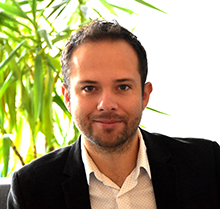
22 December 2023
Popular Science magazine has named Ronald Fernando Garcia Ruiz, assistant professor in the Massachusetts Institute of Technology (MIT) Department of Physics and member of the FRIB scientific user community, as...
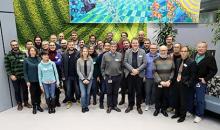
15 December 2023
The Centre National de la Recherche Scientifique (CNRS) and Michigan State University (MSU) International Research Laboratory on Nuclear Physics and Astrophysics (IRL NPA) held its inaugural science meeting 11-13 December...
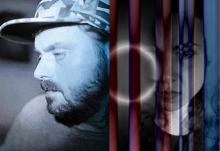
14 December 2023
Michigan State University is pleased to announce the 2024 MSUFCU Arts Power Up artists-in-residence. Abel Korinsky (representative of Studio Korinsky) of Berlin, Germany, will be in residence during the spring...
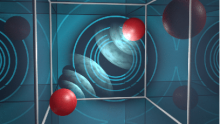
27 November 2023
North Carolina State University (NC State) published an article ( “Understanding Charged Particles Helps Physicists Simulate Element Creation in Stars”) that discusses a new Physical Review Letters publication ( “Charged-particle...
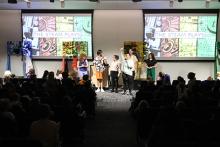
21 November 2023
Article from the MSU College of Arts & Letters A new musical by MSU Department of Theatre Professor Rob Roznowski explores the relationship between the arts and STEM (science, technology...
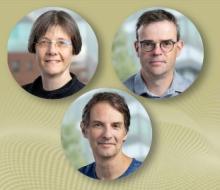
20 November 2023
Awards recognize academic advisory work, research leadership, and faculty excellence. Three FRIB faculty members received awards from the Michigan State University (MSU) College of Natural Science (NatSci) at the NatSci...
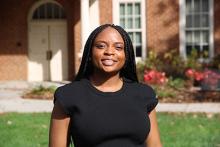
17 November 2023
Tracy Edwards, a graduate assistant at FRIB, has been named as a winner of the 2023 Spirit of Hope award, one of the 2023 Governor’s Service Awards. The Spirit of...
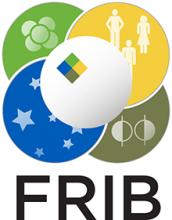
15 November 2023
On 15 November, chief investment officers from several Big Ten universities and other institutions visited FRIB to tour the facility and to discuss FRIB’s history, progress, science, and technology. The...
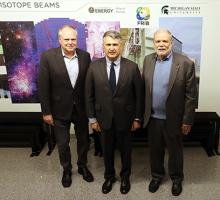
13 November 2023
Dr. Eugene Rumer, former national intelligence officer for Russia and Eurasia at the U.S. National Intelligence Council and director of the Carnegie Endowment for International Peace Russia and Eurasia Program...
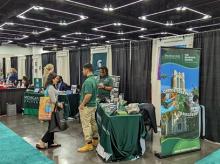
30 October 2023
FRIB participated in the 2023 National Diversity in STEM Conference (NDiSTEM) held 26-28 October in Portland, Oregon. During NDiSTEM’s graduate school and career expo, FRIB showcased its graduate programs and...
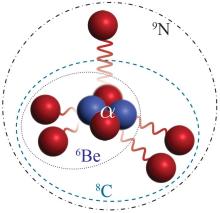
27 October 2023
In a recent Physical Review Letters paper (“ Strong evidence for 9N and the limits of existence of atomic nuclei”), scientists from Washington University in St. Louis, Fudan University in...
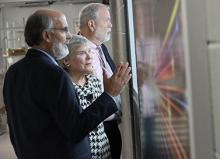
27 October 2023
Rose Gottemoeller, former Deputy General Secretary of the North Atlantic Treaty Organization (NATO), gave a lecture titled “The War in Ukraine: Russia’s Approach and Implications for Defense and Security Policy”...
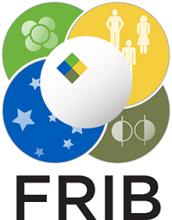
20 October 2023
William Raphael “Raph” Hix, a computational astrophysicist at Oak Ridge National Laboratory (ORNL) and member of the FRIB user community, has been named a 2023 Fellow of the American Physical...
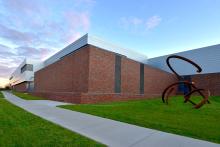
18 October 2023
The U.S. Department of Energy Office of Science (DOE-SC) posted a highlight titled “The Facility for Rare Isotope Beams after one year of operation” about the experiments performed at FRIB...
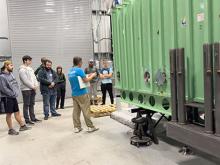
13 October 2023
FRIB hosted the Muskegon Community College (MCC) Science, Technology, Engineering, and Mathematics (STEM) Club on Friday, 13 October, as part of FRIB’s outreach program. The students toured the FRIB Laboratory...

12 October 2023
A team of FRIB scientists has received a three-year grant from the U.S. Department of Energy Office of Science (DOE-SC) to address challenges in nuclear physics via the development of...

11 October 2023
Rose Gottemoeller, former Deputy General Secretary of the North Atlantic Treaty Organization (NATO), will give a lecture titled “The War in Ukraine: Russia’s Approach and Implications for Defense and Security...
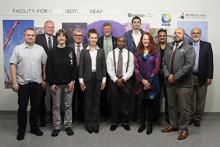
09 October 2023
On 6 October, Western Michigan University (WMU) Provost and Vice President for Academic Affairs Julian Vasquez Heilig and colleagues visited FRIB to discuss collaboration opportunities available at FRIB related to...
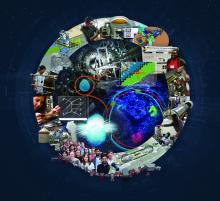
06 October 2023
The Facility for Rare Isotope Beams (FRIB) figures largely in the Nuclear Science Advisory Committee’s (NSAC) newly released “ A New Era of Discovery: The 2023 Long Range Plan for...
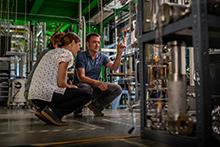
05 October 2023
Three FRIB researchers wrote an article for The Conversation ( “How a disgruntled scientist looking to prove his food wasn’t fresh discovered radioactive tracers and won a Nobel Prize 80...
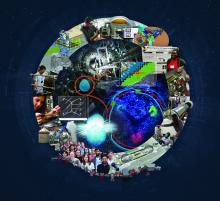
05 October 2023
FRIB will host an event from 2 to 3 p.m. on Friday, 6 October, to provide an update on the Nuclear Science Advisory Committee ’s (NSAC) newly released “A New...
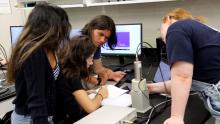
29 September 2023
This summer, 248 students and community members participated in outreach and education programs at FRIB, and it was a great season full of discovery. Thank you to all the students...
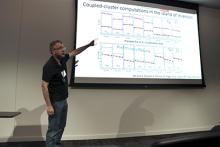
26 September 2023
FRIB hosted a one-day nuclear science symposium titled "The Past, Present, and Future of Nuclear Structure Theory in the FRIB Era" on 25 September. More than 100 participants came together...
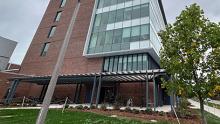
25 September 2023
FRIB recently completed two projects that have enhanced the laboratory to better serve visitors, scientific users, and employees. The FRIB Entrance Canopy and Bicycle Parking and FRIB Hardscape and Landscape...

21 September 2023
The High Rigidity Spectrometer (HRS) instrument at FRIB will enable scientists to characterize the properties of isotopes that are created in rare-isotope reactions produced at about 50 percent of the...

15 September 2023
DOE Office of Science is investing in FRIB to develop artificial intelligence tools to enhance discovery, technology, and training The Facility for Rare Isotope Beams (FRIB) at Michigan State University...

11 September 2023
FRIB, Michigan State University (MSU), and the Thomas Jefferson National Accelerator Facility (Jefferson Lab) are kicking off the second annual Distinguished Trailblazers in the Sciences competition. For the competition, pre-college...
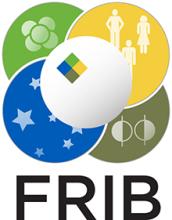
05 September 2023
In a recent Physical Review Letters paper (“Surprising Charge-Radius Kink in the Sc Isotopes at N=20”), scientists from Technical University of Darmstadt, University of Jena, Oak Ridge National Laboratory, TRIUMF...

30 August 2023
The Facility for Rare Isotope Beams, or FRIB, the MSU Museum and Michigan State University’s art, science and culture collaborative, the STEAMpower Project, are excited to announce the inaugural open...
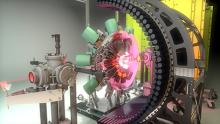
15 August 2023
by Dawn Levy, Oak Ridge National Laboratory Timothy Gray of the U.S. Department of Energy’s Oak Ridge National Laboratory led a study that may have revealed an unexpected change in...
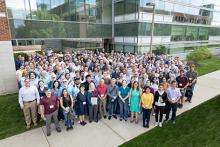
11 August 2023
FRIB hosted the 2023 Low Energy Community Meeting (LECM) 9-11 August. More than 300 members of the worldwide low-energy nuclear physics community—from more than 60 institutions—attended to interact and discuss...
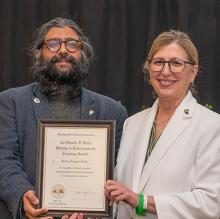
10 August 2023
Jaideep Taggart Singh, associate professor of physics at FRIB and in the MSU Department of Physics and Astronomy, has received the 2023 Donald F. Koch Quality in Undergraduate Teaching Award...
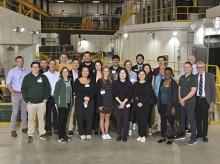
08 August 2023
Congressional staff members from Michigan’s U.S. Senate and U.S. House of Representatives offices visited FRIB on 8 August. FRIB Laboratory Director Thomas Glasmacher hosted the group’s visit, which included a...

04 August 2023
East Lansing, Mich. – The U.S. Department of Energy Office of Science (DOE-SC) has awarded $529 million to continue world-leading nuclear science research at the Facility for Rare Isotope Beams...
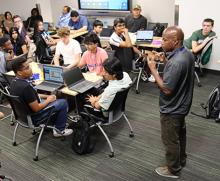
31 July 2023
From 16-29 July, FRIB hosted Physicists Inspiring the Next Generation: Exploring the Nuclear Matter (PING) 2023. Twenty-four high-school students from 14 states were on hand to learn about the field...
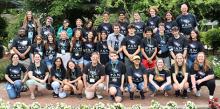
28 July 2023
FRIB welcomed 24 high-school students from 11 states and Puerto Rico to the 30th annual Physics of Atomic Nuclei (PAN) program 24-28 July. Sponsored and organized by FRIB, PAN provides...
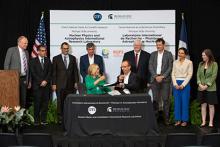
18 July 2023
EAST LANSING, Mich. — Michigan State University (MSU) and the French research organization, Centre National de la Recherche Scientifique , or CNRS, today signed an agreement to establish the International...
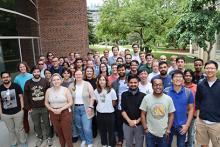
16 July 2023
FRIB hosted the 20 th Exotic Beam Summer School (EBSS 2023) from 9-15 July. The school introduces students and young researchers to the various facets of the science of exotic...
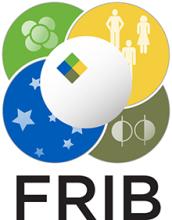
14 July 2023
Winners of 2023 FRIB Achievement Award for Early Career Researchers named 14 July 2023 The FRIB Users Organization Executive Committee and the FRIB Theory Alliance Executive Board have announced the...
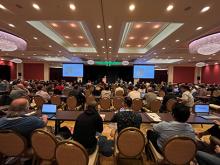
28 June 2023
GRAND RAPIDS, Mich. – Hundreds of scientific and technical leaders in the superconducting radio frequency (SRF) field are converging in Michigan for the 21st International Conference on Radio-Frequency Superconductivity (SRF...
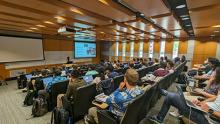
28 June 2023
The 2023 FRIB Theory Alliance (FRIB-TA) Summer School on Practical Uncertainty Quantification and Emulator Development in Nuclear Physics brought together more than 60 participants from several U.S. and international institutions...
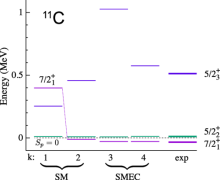
09 June 2023
In a recent Physical Review C paper, scientists from the Institute of Nuclear Physics of the Polish Academy of Sciences (Poland), Grand Accélérateur National d'Ions Lourds (France), and FRIB used...
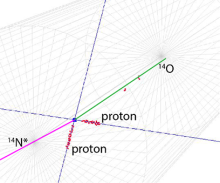
07 June 2023
In a recent Physical Review Letters paper, researchers from Oak Ridge National Laboratory, the University of Tennessee, the University of Santiago de Compostela (Spain), the Johannes Gutenberg-University Mainz (Germany), Argonne...
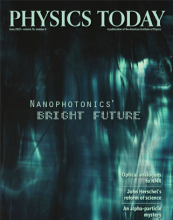
01 June 2023
The June 2023 issue of Physics Today (volume 76/no.6) has an article on FRIB. Michigan State University (MSU) operates FRIB as a user facility for the U.S. Department of Energy...
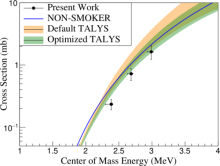
01 June 2023
In a recent Physical Review C paper, scientists from Hope College, Central Michigan University, the University of Notre Dame, the Institute for Nuclear Research (ATOMKI) in Hungary, and FRIB present...
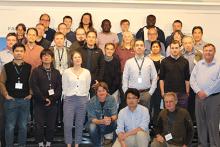
29 May 2023
FRIB hosted the FRIB Theory Alliance (FRIB-TA) topical program titled “Theoretical Justifications and Motivations for Early High-Profile FRIB Experiments” from 16-26 May. Approximately 60 participants attended to discuss questions such...
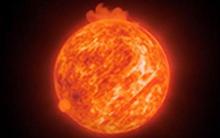
24 May 2023
The carbon atom provides the backbone for the complex organic chemistry composing the building blocks of life. The physics of the carbon nucleus in its predominant isotope, carbon-12, is also...
23 May 2023
Led by nuclear astrophysicist Kelly Chipps of the U.S. Department of Energy’s Oak Ridge National Laboratory (ORNL), scientists working in the lab have produced a signature nuclear reaction that occurs...
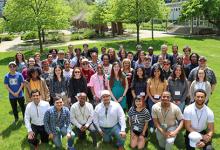
15 May 2023
FRIB hosted the 2023 Institute for Nuclear Science to Inspire the next Generation of a Highly Trained workforce (INSIGHT) Workshop 10-11 May. The workshop brought together nearly 70 faculty and...
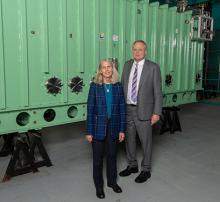
05 May 2023
On 5 May, FRIB hosted Jill Hruby, Under Secretary for Nuclear Security of the U.S. Department of Energy and Administrator of the National Nuclear Security Administration. Hruby toured FRIB after...
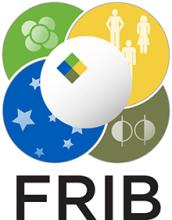
26 April 2023
Five FRIB undergraduate students received first-place awards for their research work at the Michigan State University (MSU) 2023 University Undergraduate Research and Arts Forum (UURAF). Held each spring, UURAF allows...
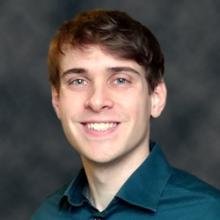
20 April 2023
Kyle Godbey, a research assistant professor at FRIB, has been named as a recipient of a Michigan State University (MSU) Postdoctoral Excellence in Research Award (PERA). Godbey’s research at FRIB...
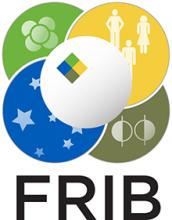
13 April 2023
The U.S. Department of Energy Office of Science (DOE-SC) posted a highlight titled “ First science results from FRIB published” about the research paper titled “ Crossing N=28 Toward the...
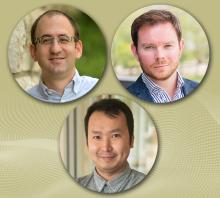
11 April 2023
Moshe Friedman from the Hebrew University of Jerusalem in Israel, AJ Mitchell from the Australian National University in Australia, and Shuya Ota from Brookhaven National Laboratory are the award recipients...
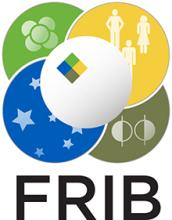
11 April 2023
In a recent Physical Review Letters paper, Chien-Yeah Seng—a visiting scholar at the University of Washington, a visiting assistant professor at FRIB, and an FRIB Theory Alliance Fellow—explains how physicists...
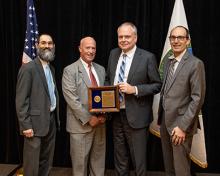
11 April 2023
The FRIB Project received the U.S. Department of Energy Office of Science (DOE-SC) Office of Project Assessment Award for 2022 on 11 April 2023 in Washington, DC. In part, the...
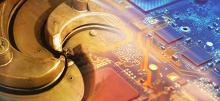
06 April 2023
MSU’s decades-long tradition of heavy-ion accelerator expertise tapped to help meet current national shortfall of testing capacity for advanced microelectronics, including for space-based applications Michigan State University (MSU) will build...
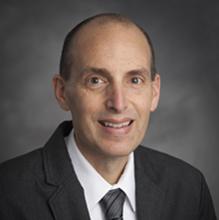
03 April 2023
Paul Mantica, former FRIB project manager and FRIB deputy laboratory director and current Facilities & Project Management Division director at the U.S. Department of Energy Office of Science Office of...
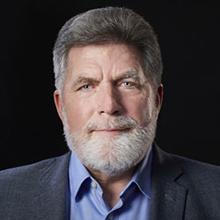
31 March 2023
Dr. Brad Roberts, director of the Center for Global Security Research at Lawrence Livermore National Laboratory, will give a lecture titled “U.S. Nuclear Deterrence Strategy in the New Security Environment”...
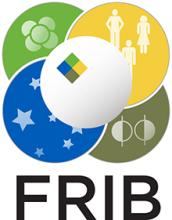
27 March 2023
In a recent Physical Review C paper, scientists from the University of Washington, the University of Bonn, Johannes Gutenberg University Mainz, and FRIB explain how precise measurements benefit theory frameworks...
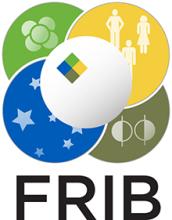
15 March 2023
The FRIB Program Advisory Committee (PAC) has peer-reviewed science proposals for experiments proposed to be conducted at FRIB. The PAC-recommended experiments align with national science priorities and span the four...

10 March 2023
EAST LANSING, MI – The International Research Network for Nuclear Astrophysics (IReNA), supported by the National Science Foundation (NSF) and headquartered at Michigan State University (MSU), brings together nuclear physicists...
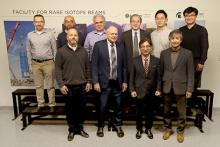
02 March 2023
On 2 March, FRIB hosted representatives of the Rare Isotope Science Project (RISP) in South Korea. The visit was part of an information exchange about the progress of RISP and...

08 February 2023
In a recent Physical Review X Quantum paper, a team of scientists from Lawrence Berkeley National Laboratory, the Colorado School of Mines, Yale University, and FRIB explains its new method...
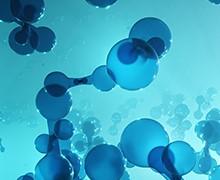
01 February 2023
Researchers update their understanding of resulting reactions when heavy-ion beams hit a flowing-water target, a key variable to the eventual collection of radionuclides for use in medicine, materials science, and...

31 January 2023
FRIB, Michigan State University (MSU), and the Thomas Jefferson National Accelerator Facility (Jefferson Lab) honored the winners of the “Distinguished Trailblazers in the Sciences” competition at a virtual ceremony on...

31 January 2023
There is a large community of scientists looking into what happens when a star explodes. What they are interested in—supernovas and neutron star mergers—are energetic events occurring at the end...
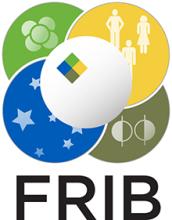
31 January 2023
Rebecca Surman, a professor in the Department of Physics and Astronomy at the University of Notre Dame, member of the FRIB Users Organization, and former member of the FRIB Theory...
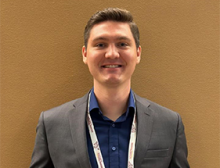
26 January 2023
Duncan Kroll, a third-year mechanical engineering graduate student in the MSU College of Engineering and part of the MSU Cryogenic Initiative at FRIB, won an award for his student presentation...
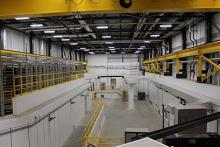
11 January 2023
The latest issue of Nuclear Physics News (volume 32/no.4) has an article on the High Rigidity Spectrometer (HRS) at FRIB (pages 16-19). The proposed High Rigidity Spectrometer will substantially increase...
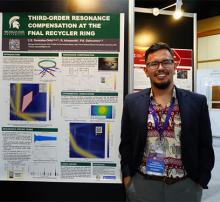
11 January 2023
Graduate students conduct thesis research at national labs through Accelerator Science and Engineering Traineeship opportunities Two Michigan State University (MSU) graduate students with FRIB’s Accelerator Science and Engineering Traineeship (ASET)...
03 January 2023
This year-in-review video highlights FRIB’s greatest achievements in 2022.
